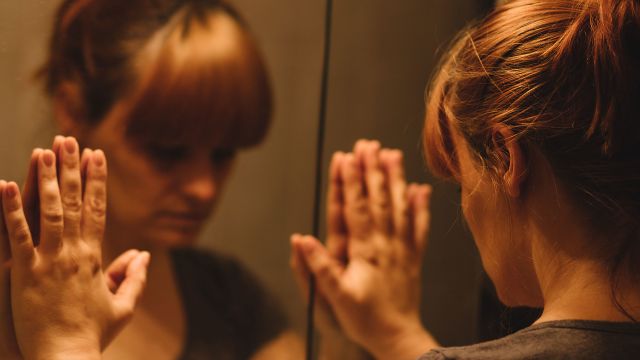According to the Centers for Disease Control and Prevention (CDC), over half of the women who are murdered in the US die at the hands of an intimate partner. And partner violence and abuse can happen to both men and women: the National Domestic Violence Hotline reports that 30 percent of women and 10 percent of men in the US have experienced some type of abuse by an intimate partner.
All of these statistics confirm that abuse—whether physical, emotional or sexual, is a huge problem in this country and beyond. Director of Behavioral Health Services at Colleton Medical Center in Charleston, South Carolina, Deborah Parker, RN, discusses the hard truth about how abuse begins, how to recognize the signs and what to do about it.
How abuse begins
Abusive relationships don’t always start out abusive, says Parker. “The abuser can seem quite charming, pleasant and doting at first. Then, over a gradual period of time, controlling behavior starts to shine through.”
And while not always the case, research shows that a lot of abusers have been abused before. “If they haven’t had strong role models to show them what a good relationship is like, if they witnessed an abusive relationship between their parents or were abused by someone themselves, there is a higher likelihood that they may develop into abusers,” says Parker. Abuse and violence is a learned behavior, and is usually observed from family, friends or other members of their community and culture.
According to the National Domestic Violence Hotline, domestic abuse almost always stems from a yearning to have power and control over an intimate partner. Most abusers think that their feelings and wishes should come before anyone else’s. And while drug and alcohol use can definitely make abuse worse, it does not cause someone to be abusive. Some abusers may also have an undiagnosed personality or psychological disorder.
Types of abuse
While every domestic violence case looks a little different, here are signs of some of the most common types of abuse.
Physical abuse: Direct contact like punching, pulling hair, slapping, kicking, biting and choking are just some of the ways abusers unleash their aggression on a loved one. Abusers can hurt you in other ways, too, like controlling how much your sleep or eat, or denying you medical care when you need it. They may take their aggression out on animals or children, too.
Controlling behavior: Abusers want full control over their significant other. Some of the ways they try to gain control can include:
- Managing the money and refusing to let you be involved or have access to it.
- Asking a lot of questions such as "Where have you been?” “Why are you late?”
- Stopping in to check on you at work, the grocery store or other places where you might be expected.
- Restricting what you wear or trying to control how you look: your hair, your weight or your makeup.
Jealous tendencies: With control comes jealousy. Your abuser may question when other men or women look at or talk to you and how much time you spend away from your abuser.
Unrealistic expectations: Because an abuser’s wants and needs always come first in their minds, they’re likely to expect a lot from their significant other. “Having unrealistic expectations is common, and they usually expect that you can anticipate all of their needs. They expect perfection and service,” says Parker.
And if something goes wrong, Parker says, they will usually blame you for the mistake. “They may make it seem like it was your fault for something as simple as missing a doctor’s appointment.”
Mood swings and aggressive behavior: In further attempts to control you, it’s not unusual for an abuser to say cruel things, threaten to leave you, criticize everything you do or believe in and spout off degrading comments. “This hostile behavior is pretty universal for all kinds of abuse, whether it be physical abuse, verbal abuse, emotional abuse or sexual abuse,” Parker says.
Forced isolation: It’s very common for abusers to take control of who you can and can’t see—to cut you off from friends and family and forbid you from being social.
Forceful sex: Abusers are also aggressive in the bedroom. They force you to have sex when you don’t want to, and force you to partake in sexual activities that you don’t want to do. “Oftentimes this starts as playful physical activity during sex—tactics like hair pulling or slapping,” says Parker. Things will then become more forceful; you may be pinned down, or your abuser won’t take no for an answer. Phrases like “If you really loved me, you would sleep with me,” and “sleep with me to prove your sexuality” are two phrases often used as coercion tactics.
Remember that just because you’ve said yes to something earlier on in your relationship, it doesn’t mean you have to later. If you don’t consent to sex, it is rape.
What to do if you think you’re in an abusive relationship
The first thing to know is that abuse is not OK and it’s not your fault. “It is someone else's maladaptive relationship skills and you just happen to be the victim of that,” says Parker.
After experiencing emotional and physical abuse, it’s easy to start believing the awful things you’re hearing, which can make it hard to leave or get help. “If you are consistently hearing that you're no good and you’re not worthy, over a period of time you can become emotionally beaten down to the point that you start to internalize and potentially believe those things, even though they're not true,” says Parker.
And often times abusers have something called a honeymoon period that may also make it hard for you to leave. The honeymoon period usually involves an act of violence or abuse followed by sweet comments, begging for forgiveness and claims that it will never happen again. “This cycle usual goes around and around,” Parker says.
There are some ways you can take action and find safety for yourself and any children in your care:
- If you are in immediate danger, do everything you can to call 911 right away.
- If you’ve been the victim of abuse, reach out to the National Domestic Violence Hotline website or call 800-799-7233. Trained staff members can answer your questions and give you information about resources to help you.
- Keep records of the abusive events, the dates and the times that they occurred. If you seek a restraining order or some type of legal protection, you’ll have a record of what happened and when.
- If you are going to leave, learn more about making a plan at the Rape, Abuse and Incest National Network’s website or call 1-800-656-HOPE. They can help you figure out where you’ll go, how you’ll get there and who you’ll ask for help, or at least make aware of your plans to leave.
- If you don’t have family or friends nearby, crisis shelters that will protect your identity are available for you and your children. Find one here.
Medically reviewed in February 2020.





